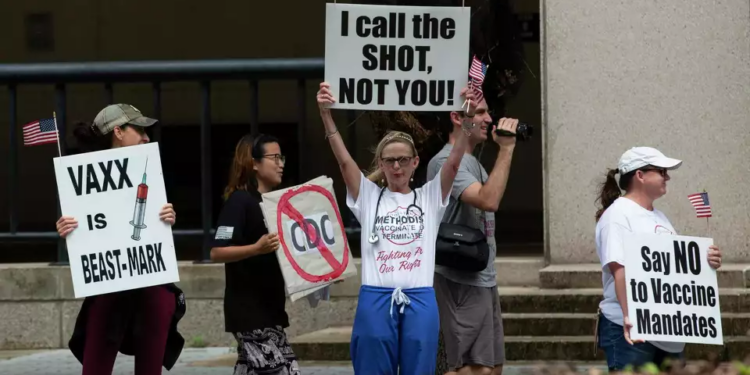Texas Governor Greg Abbott has recently enacted a new law, Senate Bill 7, which prohibits private employers from enforcing COVID-19 vaccine mandates. This law directly contradicts federal guidance, which generally supports an employer's right to implement such mandates. The new law went into effect on February 6 and carries significant penalties for violations.
Under Senate Bill 7, private employers in Texas are now prohibited from taking adverse actions against unvaccinated employees, contractors, or applicants. Adverse actions are defined as actions that a reasonable person would consider punitive or detrimental to the individual. The Texas Workforce Commission (TWC) will handle complaints regarding violations of this law, and penalties can reach up to $50,000 per violation. However, if the employer rectifies the violation by hiring or reinstating the affected individual with full back pay and benefits, the penalty may be avoided. The TWC also has the authority to recover investigative costs and may request the involvement of the Texas attorney general in filing suit against non-compliant employers.
It is important to note that certain healthcare facilities, providers, and physicians are exempt from this new law to some extent. They are allowed to require unvaccinated employees and contractors to wear protective medical equipment, but the policy must be reasonable and based on the level of risk the individual poses to patients due to routine and direct exposure.
The conflict between Senate Bill 7 and federal guidance on COVID-19 vaccine mandates is notable. The Equal Employment Opportunity Commission's guidance allows private businesses to implement policies requiring vaccination for their workers. Employers can also request documentation or confirmation of vaccination status in accordance with their policies. However, there are exceptions for employees who refuse vaccination due to disabilities or sincerely held religious beliefs. These employees may be eligible for reasonable accommodations under the Americans with Disabilities Act or Title VII of the Civil Rights Act of 1964.
For employers operating in Texas, especially healthcare providers who fall under the exemption, it is crucial to review their current vaccination policies to ensure compliance with the new law. Failure to do so may result in significant penalties and legal action. It is important for employers to navigate the conflict between state and federal guidance on COVID-19 vaccine mandates carefully, taking into account the exceptions provided by federal law.
In conclusion, Texas Governor Greg Abbott's enactment of Senate Bill 7 has created a clash between state and federal guidance on COVID-19 vaccine mandates. Private employers in Texas are now prohibited from enforcing vaccine mandates, which contradicts federal guidance supporting an employer's right to implement such mandates. Employers must review their current policies to ensure compliance with the new law and consider the exceptions provided by federal law for employees with disabilities or religious objections. Navigating this conflict is essential to avoid penalties and legal consequences.







